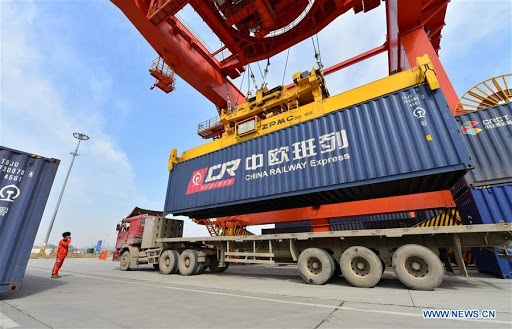By Dr. Austin Maho
Few days ago the Nigeria media was on a feeding frenzy over reports that a Chinese citizen kidnapped in Ekiti state four days earlier was released after the payment of an alleged and absurd amount of a hundred million naira!
The share weight of number was irresistible to many media organisations even the well-established one fell for it and the online mediasphere was agog, even when reports could not authenticate, verify or establish the source of the alleged humongous pay-out.
Going through the reports one thing was obvious: the story originated from a single source and aped by other media outlets, this was evident from the language, nuances and how the story was framed.
Those who copied and published the story didn’t subject it through an independent process of verification. They all said they got the story from a source who pleaded anonymity. A source hiding under the cover of anonymity may actually be pursuing a personal agenda or vendetta. Journalists should be circumspect when a source pleads anonymity because when information given by an anonymous source turns out to be false as it was in this case, the journalist can be held liable for the dissemination of false information and the journalistic privilege of non-disclosure of sources would not avail.
A source who would quote different figures to different media outlets is a tainted source. At one breath it was N100 million then N10 million! The Ekiti state command of the Nigeria Police took credit for the rescue operation that saw to the release of the kidnapped victim and in a press statement said no ransom was paid, nothing in the public space has so far challenged this position.
The China General Chamber of Commerce in Nigeria, a body of all Chinese businesses in Nigeria, actually took the unusual step of coming out to debunk the report.
A release made available to the press expressed displeasure over the public dissemination and circulation of such unverified misinformation which it observed amounts to an “acquiescence towards such felony” capable of “posing severe potential security risks towards the Chinese business community and rendering grave threat towards every single diligent Chinese expatriate and other foreign nationals living in Nigeria”.
It further noted that such unverified and sensational report is capable of tarnishing the reputation of Nigeria business environment, causing great panic and hesitation among potential foreign investors. “The Chinese General Chamber of Commerce hereby calls for serious attention from our media friends towards this issue and has full confidence that it would be addressed appropriately. The Chamber and all Chinese enterprises in Nigeria remain committed to building Nigeria and sharing future with Nigeria.
The statement was loaded. The Nigerian media by the report was inadvertently, causing unnecessary panic within the expatriate community in the country and driving away potential investors. Truth be said no body planning to invest in the country would pursue an investment plan when the country’s media sensationalises and seemingly glorifies falsehood. The consequence of such action is detrimental to the Nigeria economic which needs a healthy dose of foreign investments to get out of its current recession.
Another statement by the Nigeria, China Association jointly signed by Amb. Olusola Onadipe, Amb. Jonathan Coker, Amb. Adegboyega Ariyo and Mr Bola Akinbolawa, described the media reports as misleading and having serious consequence and destructive to Sino-Nigeria relationship.
“This report was first released by a small network media. Now, some mainstream media in Nigeria have reprinted the reports, which mislead Nigerians’ judgment and this will have serious consequence,” the association said.
They accused those behind the reports of trying “to destroy the friendship between the governments and people of the two countries.
“We extremely despise this despicable practice of conspiracy behind the scenes,” the statement said, adding that the report was aimed at putting the people of Nigeria and China in danger.
However it was gratifying that responsible media outlets who later discovered that the story was false acted appropriately by pulling it down. The Punch and Guardian for instance pulled the story from their websites few hours after it was first posted while several others later followed suit.
Irrespective of the pressures associated with online publishing, values of accuracy, pre-publication verification, balance, impartiality, and gate-keeping, must not be jettisoned for click baits and media ratings.
In the extant case verification was jettisoned for sensationalism. The news item was not checked for credibility and reliability before publication as there were no direct or indirect sources to give credence to the story.
There is no doubt that with the advent of online journalism facts has become more vital than ever before because of the easy spread of misinformation and conspiracy theories.
Often the pressure to join the trend and break the news places a lot of pressure on most media organisation especially in an era of social media and the mad craze for media rating this however does not excuse media professionals from staying true to the time tested ethics of verification of news and sources.
Journalist have an enormous responsibility to stand up for facts, whatever and wherever those facts are, they should dig them out and not rely on hearsay no matter how good it may sound. Journalist should be driven to make decisions based on verifiable facts, and seek out credible sources to back up such stories. They should resist the temptation to sensationalise or weave click-baits.
Journalists should be prepared always to fact-check their sources and provide fact-based news that enhances trust between the purveyor of information and the consumer who rely on it to make informed decision.
Dr. Austin Maho is a media scholar and Facilitator at the National Open University of Nigeria, NOUN, Part time lecturer at the University of Abuja and Resource Person at the International Institute of Journalism. He is also the publisher of daybreak newspaper and Red Dragon Magazine





